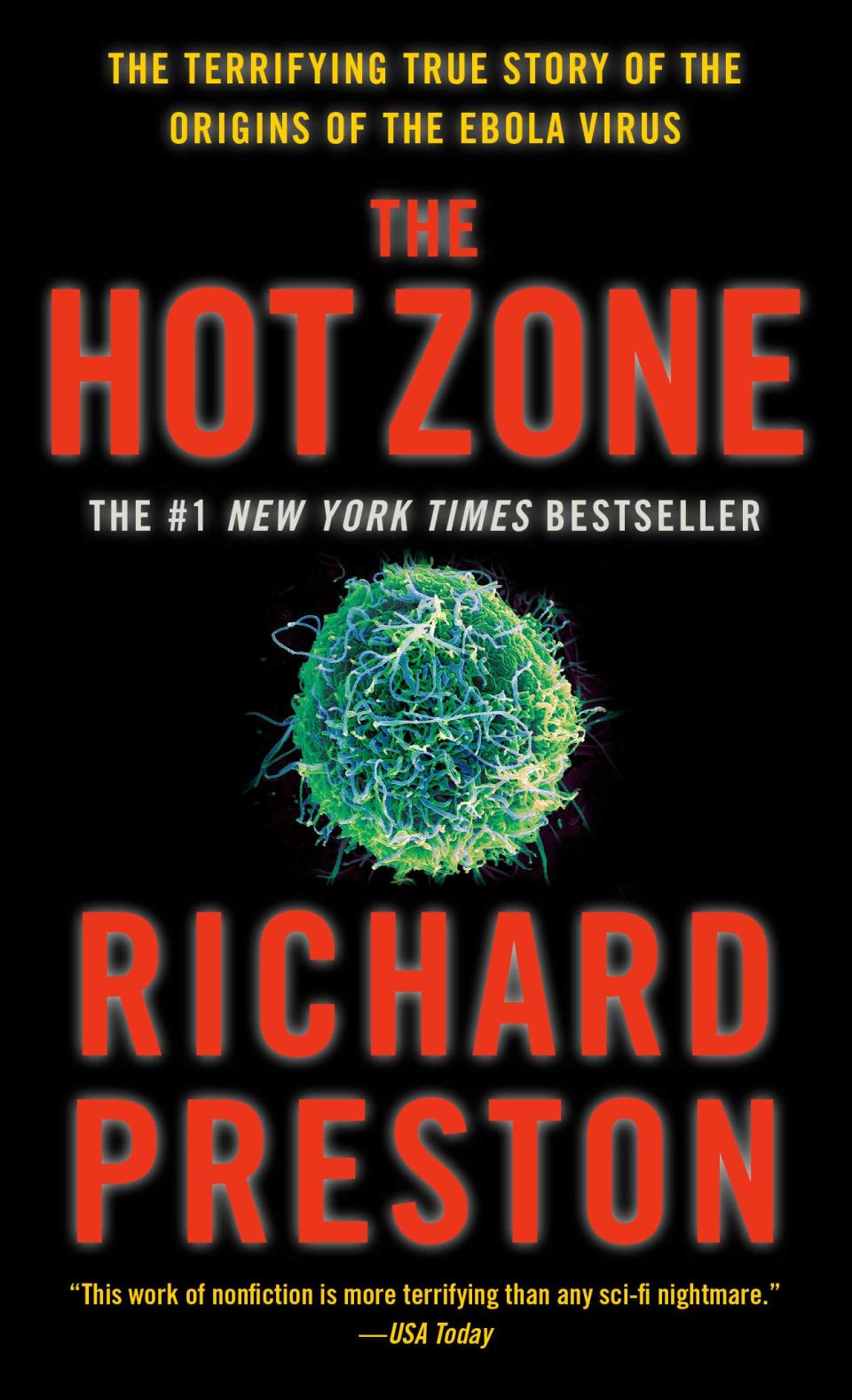'Hot Zone' author on coronavirus, President Trump's 'incredibly stupid' de-funding of WHO and the terrifying outbreak that could be next
The Hot Zone author Richard Preston is not a trained a medical professional — he will be the first one to tell you that. But the journalist and bestselling novelist has been well-versed in virology for three decades now, ever since his reporting on the Ebola virus in West Africa evolved from a 1992 story in the New Yorker ("Crisis in the Hot Zone") to a 1994 New York Times bestseller.
The nightmare-fueling, non-fiction thriller has been credited with changing the way we look at pandemics, and Preston very much viewed his breakout book as a cautionary tale about the threat of a virus sweeping the globe.
"I think by the time I finished that book, it was apparent to me that there was going to a pandemic," Preston tells Yahoo Entertainment during a Skype interview (watch above) as the coronavirus continues to wreak havoc across the globe and in the United States, with a national death toll that has already surpassed 45,000. "That's what I was hearing from virologists."
The Hot Zone — which initially served as the inspiration for the 1995 film Outbreak before its screenwriters took the story in another direction and was turned into a miniseries in 2019 — focused on four different arcs dealing with filoviruses. The most memorable section, though, deals with a 1989 incident in which hundreds of monkeys in a Reston, Va., lab were infected with the Ebola virus. There was genuine fear at the time from both the U.S. Army and the Centers for Disease Control that the virus could spread to humans.
"What happened was the Reston Ebola virus (RESTV) did infect a number of people. But it turned out to be, for some weird unknown reason, non-lethal or extremely wild in humans," Preston says. "In effect we got really lucky. We've had a series of lucky breaks since then." Until the coronavirus, that is.
Preston says he's heard predictions within the scientific community that a coronavirus — COVID19 is the third known iteration — would be the most likely strain to cause a pandemic as early as 1994.

The author has worked closely with the CDC over the years. In addition to The Hot Zone, he's penned The Cobra Event (1998), The Demon in the Freezer (2002) and Crisis in the Red Zone (2019), both fictionalized and real accounts that delve into outbreaks. So it pains him to hammer the organization down when it comes to their response to the coronavirus: "The CDC in general has an absolutely amazing record of fighting emerging diseases. The CDC is incomparable," he says. "This is a big fail, and it's heartbreaking, with the failure to develop and implement a rapid test [and] get it out there. I know and admire people at the CDC and to see this happening, it's just tears you apart."
And while Preston acknowledges the World Health Organization is a more politicized institution, he doesn't parse words over President Donald Trump's announcement last week that he would be halting U.S. funding to the organization. "This is incredibly stupid, that's just shooting yourself in the foot," he says. "WHO needs more support than ever. It needs the leadership of the United States. The WHO can perform much better with good leadership from the United States and from nations like Japan, France, the U.K., Germany."
Preston's work — like films Contagion and Outbreak — is seeing a surge in popularity amid the coronavirus, and the author has made a career out of writing sharply detailed, deeply penetrating works that can scare the hell out of us. But his outlook of what could lie ahead post-COVID19 is even scarier — like the NIPAH virus.
"It’s been engaging in small outbreaks. It's another bat virus, but it's a totally different family [from the coronavirus]. It's related to measles. It's been breaking out in Southeast Asia. And right now it's not very infectious in humans.
"But it gets in through your lungs and then it migrates from the lungs to the brain where it causes personality changes, spotty liquefaction of the brain and death. Now, if something like that [a relative of NIPAH] were to become highly contagious … if the thing was spreading in the air that caused personality changes and spotty liquefaction of the brain, we would have a really big problem."
— Video produced by Jon San
For the latest coronavirus news and updates, follow along at https://news.yahoo.com/coronavirus. According to experts, people over 60 and those who are immunocompromised continue to be the most at risk. If you have questions, please reference the CDC’s and WHO’s resource guides.
How to maintain your physical and mental health during the pandemic
Taking care of a loved one with COVID-19? Here’s how to stay healthy
Q&A with Dr. Kavita Patel: How to keep your family safe and maintain your mental health
Read more on Yahoo Entertainment:

